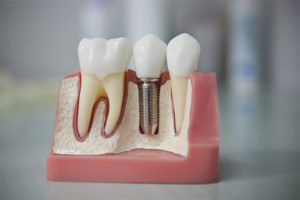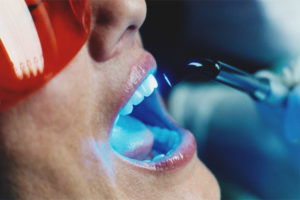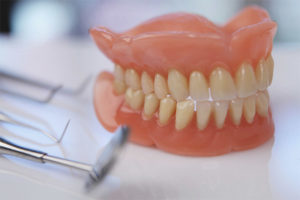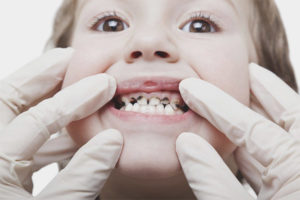The content of the article
Toothache is one of the most unpleasant phenomena that can make our life black and white. When the pain becomes acute, impulsive, a person can not think of anything but a bad tooth. And if at the time of exacerbation there is no way to go to the dentist, you can reduce or temporarily calm the pain yourself.
Causes of Toothache
If something hurts, then there is a reason, and it must be addressed. Toothache can be dull and aching, and it can throb, giving back to the temples and causing a headache. The reason is the sensitivity of the dental nerve to changes in food temperature, inflammation, infection, and in general damage to the dental nerve.
Consider the most common causes:
- Toothache after tooth extraction. As a rule, this is natural, and after a day or two she calms down. After all, after tooth extraction, an open wound remains, which should gradually heal. In no case can you climb there with foreign objects or the tongue, you need to eat on the other side, so as not to interfere with the wound to heal, and not to make an infection. But if the pain does not subside, and does not pass over time - consult a doctor, there may be complications.
- Caries. Pain occurs if the disease is neglected, the center of destruction went deep into the tooth and touched the dental nerve. Under such conditions, you can reduce the pain for a while, but a visit to the dentist is mandatory.
- Periodontitis. The pain occurs when there are pockets near the tooth, while bleeding appears. Without the intervention of a dentist, the disease cannot be cured at this stage.
- Incorrect filling. With improper tooth treatment, the disease continues to develop, reaching the depth of the tooth and touching the nerve. There is only one way out - the dentist must remove the filling, clean the tooth and fill it again.
In any case, with a strong permanent toothache, you must consult your dentist to find out the cause and eliminate it.
Methods for calming a dental nerve at home
With the sudden appearance of toothache, you can reassure her at home. In addition to taking pain medication, you can make a rinse solution or herbal decoction:
- The simplest solution, which does not require any special means and is always at home, is soda. 1 teaspoon of soda is enough for a glass of warm boiled water. It is important to stir it well so that a minimum of sediment remains. Such a tool disinfects and soothes pain sensations: soda is known for its antibacterial properties, and it also softens tissues in the gums and relaxes the nerve, which helps reduce pain cramps. It is recommended to add a couple of drops of iodine to the solution, this will only improve the positive effect.
- Hydrogen peroxide is diluted in proportions 1: 2 with water. The product disinfects well and relieves inflammation.
- A decoction of garlic with salt or a compress of pounded garlic and salt. The compress is done this way: in a small piece of gauze, a pulp of pounded salt and garlic is added and applied to the sore area of the gums. Garlic perfectly destroys bacteria and relieves pain.
- An infusion of onion peel acts as a pain-reducing and preventive tool against caries: 500 ml of boiling water falls on three tablespoons of the plant, brought to a boil and boiled for 10 minutes. Then the product is filtered and infused for about 8 hours.
- Clove oil quenches pain well: a few drops of oil are applied to the fleece and applied to the sore area of the gums.
- Any strong unsweetened alcohol (vodka, whiskey, cognac).But take it inside is not worth it - just hold for a few minutes a sip of alcohol near the diseased gum, and then spit it out. Thus, under the influence of alcohol in the drink, the nerve and tissues become numb, and the pain subsides. Well, the antiseptic properties of alcohol are well known. This method is suitable for severe persistent pain to "kill" the nerve.
- With very severe pain, you can soak a piece of fleece with iodine and attach to the affected area. The effect will be approximately the same as when using alcohol.
- Herbal decoctions. Since ancient times, many diseases have been treated with herbs, and toothache is no exception. Suitable chamomile, oak bark, lilac leaves, lemon balm and mint. The herbs are brewed as tea, left to infuse for 10-20 minutes, then filtered through a sieve of half a glass of infusion and left until the temperature reaches a little higher than room temperature. The procedure consists in such actions: the infusion is typed in the mouth in small sips and rinsed by the diseased nerve for about a minute. Repeat 3-4 times. After the procedure, do not drink for an hour.
Important! If the nerve hurts after tooth extraction, then rinsing is not necessary, otherwise the resulting film will be damaged in place of the wound. Just type a decoction in your mouth and hold for 1-2 minutes from the side of the diseased nerve, repeat 3-5 times.
After using any of the above, it is recommended not to eat food, and do not drink liquid for 1 hour. Also, smokers are not recommended to smoke at this time, as cigarette smoke irritates the inflamed area.
If some of the remedies (such as herbal infusions and solutions of soda, hydrogen peroxide and iodine) are used as prophylactic, then the procedure is recommended after eating or in the morning after breakfast and in the evening before bedtime.
Remember: a toothache signals us about the appearance of a disease. If you delay the trip to the dentist for a long time, then a small temporary toothache can develop into a permanent and severe one, which indicates a complication of the disease. And the lack of proper timely treatment can lead to tooth loss.
It is recommended that a dentist undergo a routine examination once every six months to identify possible diseases in a timely manner, and also remember to carry out standard procedures for maintaining oral hygiene - brushing your teeth in the morning and evening, using toothpicks or dental floss after eating.
Video: how to relieve toothache and not pull out a tooth











Submit